MY CHILD JUST GOT DIAGNOSED WITH AUTISM
Discover this episode “My child just got diagnosed with Autism” to help your loved ones and yourself!
In this week’s podcast I discuss
- Moving Forward verses Moving On
- How to create an ‘Elevator Pitch”
- What to do when people offer “advice”
- Why grief is different for everyone
Further Tipsheets and podcasts on diagnosis
Learn from “My child just got diagnosed with Autism” Today!
8 Strategies for Self-Care
Excerpt from page 122 of The Ultimate Guide to Home and School By Sue Larkey
It’s important that parents/carers look after themselves and other relationships when looking after someone on the autism spectrum.
Taking care of yourself is not being selfish, it’s a necessity. Don’t feel guilty for wanting some time out! Being emotionally strong allows you to be the best parent you can be for your child.

Deal with stress in a positive way. My main tip is to prepare yourself for situations that will cause you stress and have pre-prepared answers /actions to use in stressful situations.

Use respite services when they available to you (don’t feel guilty about leaving your child there). Call on grandparents/friends for a cuppa or for babysitting. Use counselling services
which are available to you. Sometimes just talking to someone from outside the situation can help.

-
Join a support group with other likeminded people who will understand (e.g. Sue Larkey Parent/Carer Facebook Group). Other parents will always listen to you as they are ‘in the same boat.’ Joining a group will help you deal with your feelings. Your emotions of anxiety for your child or guilt are a normal part of parenting a child with needs. Use these emotions in a positive way to motivate yourself for your child and your family.

-
Plan and incorporate into your day some exercise/yoga/walking/walking. Make sure you have some rest and don’t skip meals when you’re tired.

-
Learn to laugh even at the embarrassing moments.

- Have at least one outside interest -maybe a craft group/gym group/coffee morning group/reading club.

-
Don’t expect too much from friends

-
Be easy on yourself. We all make mistakes. Practice using positive self-talk until it sticks.
Want to learn more with Sue Larkey?
The Ultimate Guide to School and Home
-
Can I Tell You About Asperger Syndrome?
$31.95 -
The Red Beast
$45.95 -
Talking to Family and Friends about the Diagnosis
$25.00 -
My Friend with Autism (Enhanced Edition)
$31.95 -
Inside Asperger’s Looking Out
$42.95 -
Can I Tell You About OCD?
$31.95 -
Can I Tell You About Autism?
$31.95 -
Can I Tell You About Anxiety?
$31.95 -
Can I Tell You About Dyspraxia?
$31.95 -
Can I Tell You About ADHD?
$31.95 -
I am an Autistic Girl
$42.95
UNDERSTANDING AuDHD: Teaching & Supporting Students with Autism and ADHD Co-occurrence
✅ 2 Hours, 8 Lessons
✅ 6 Weeks to Complete
✅ Certificate of Completion
✅ Lesson Transcripts
 2 Hours
2 Hours

$149
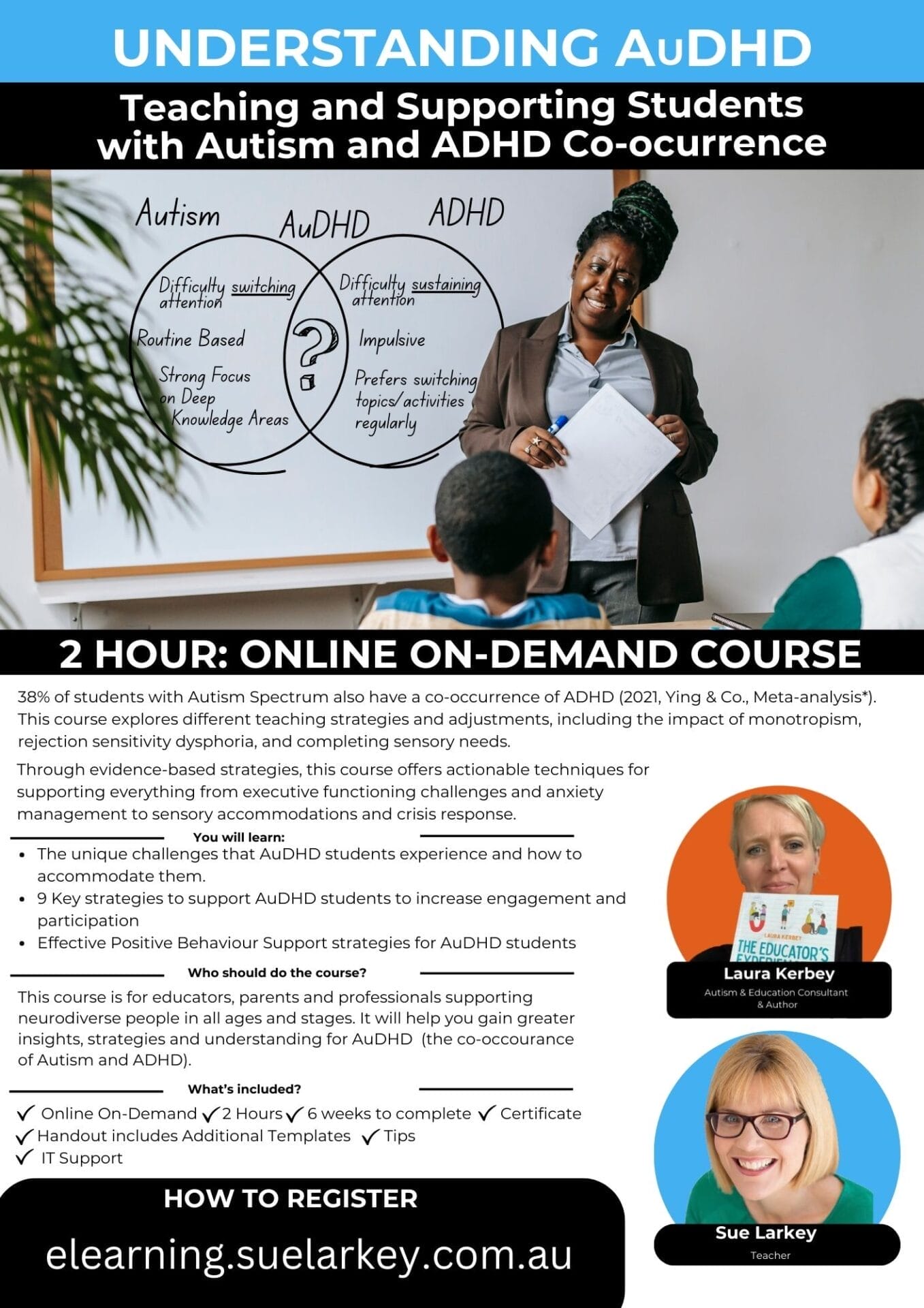

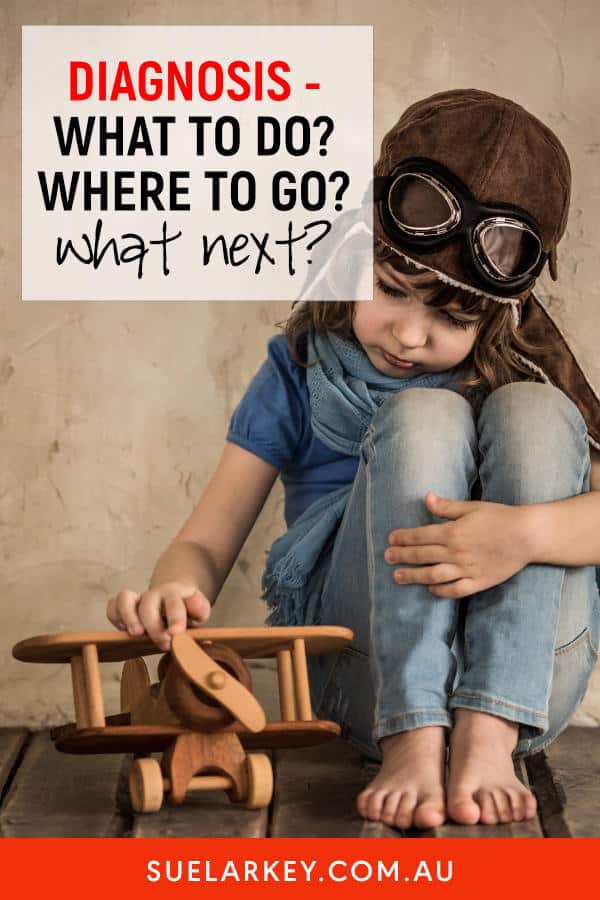

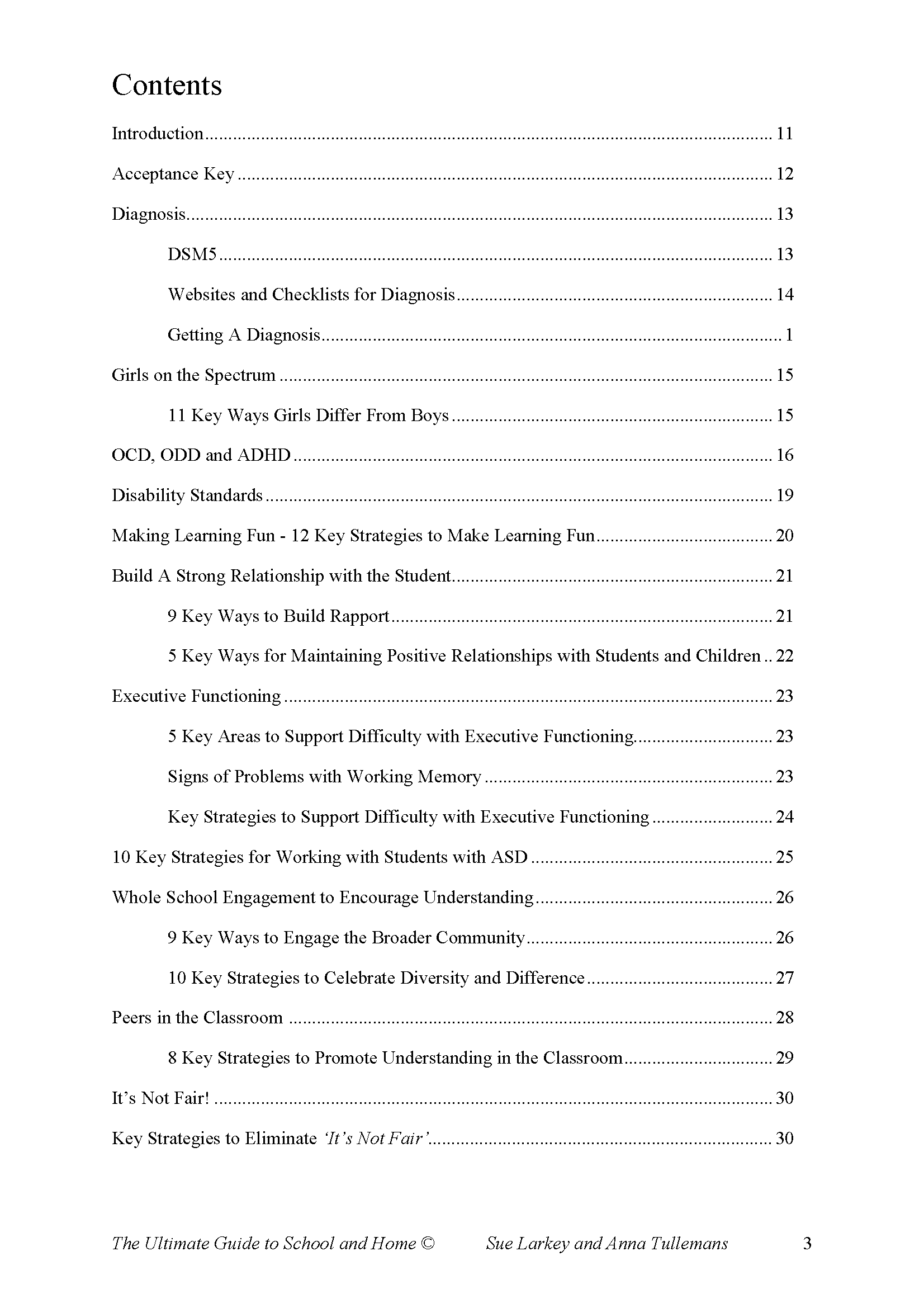
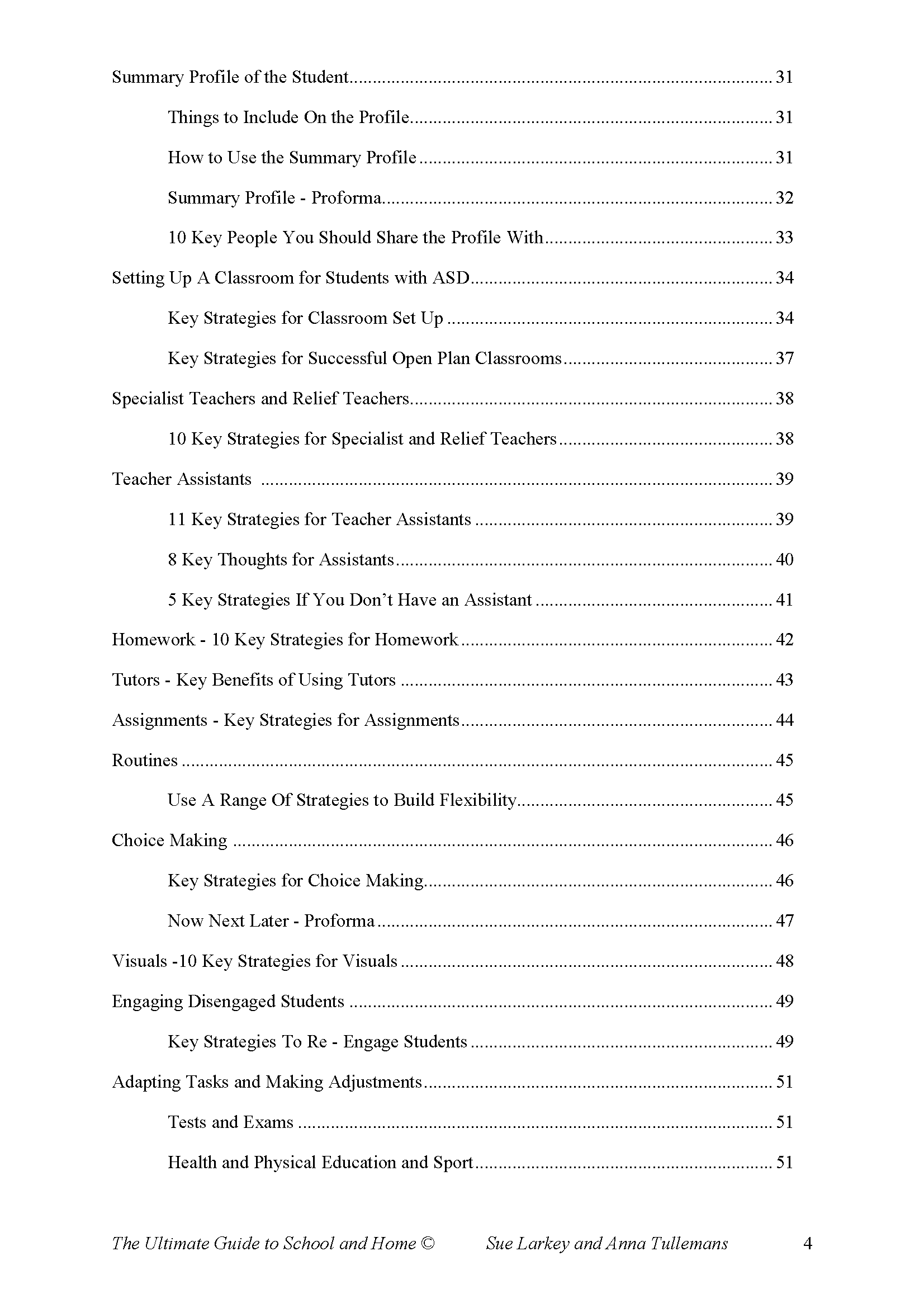
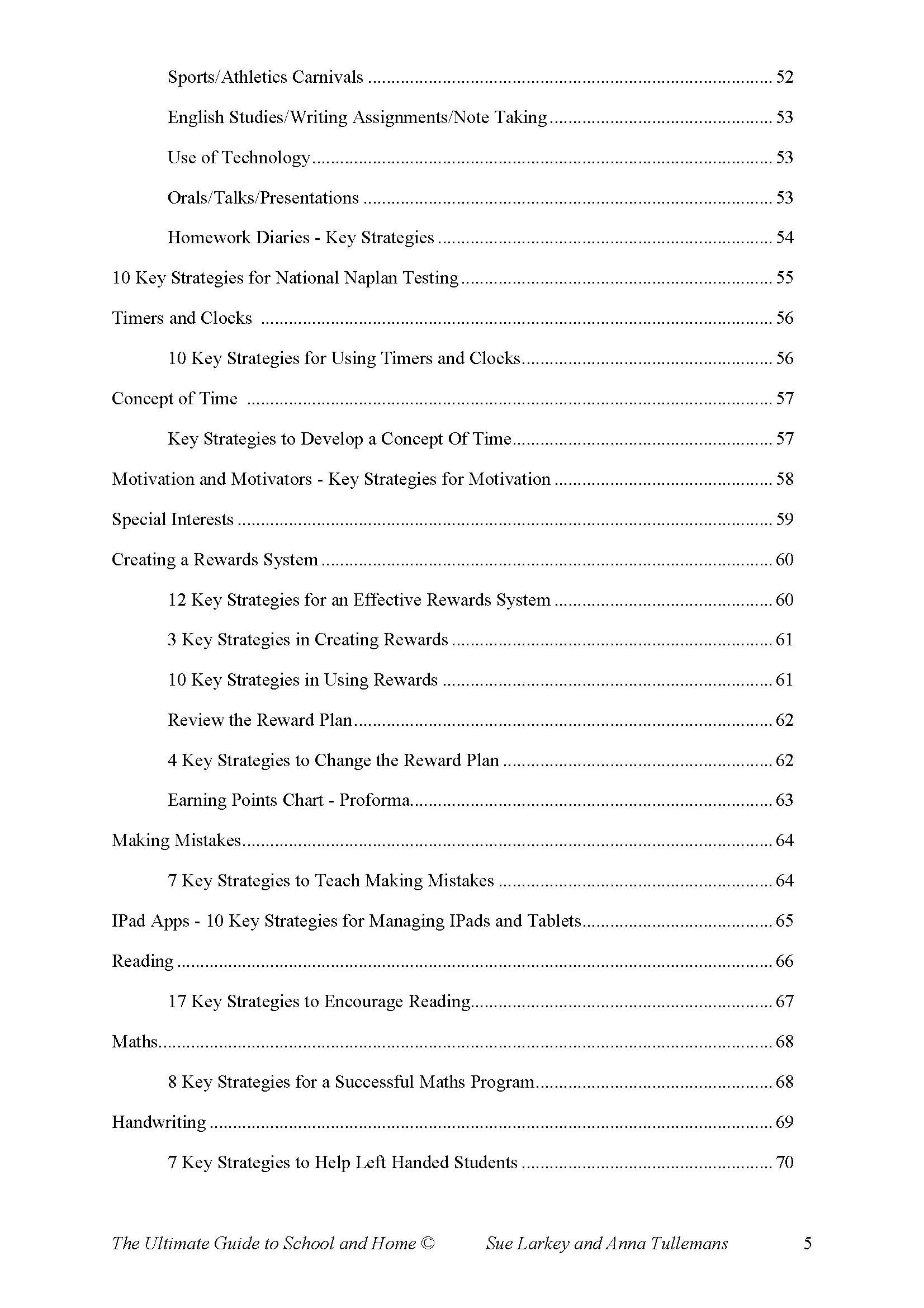
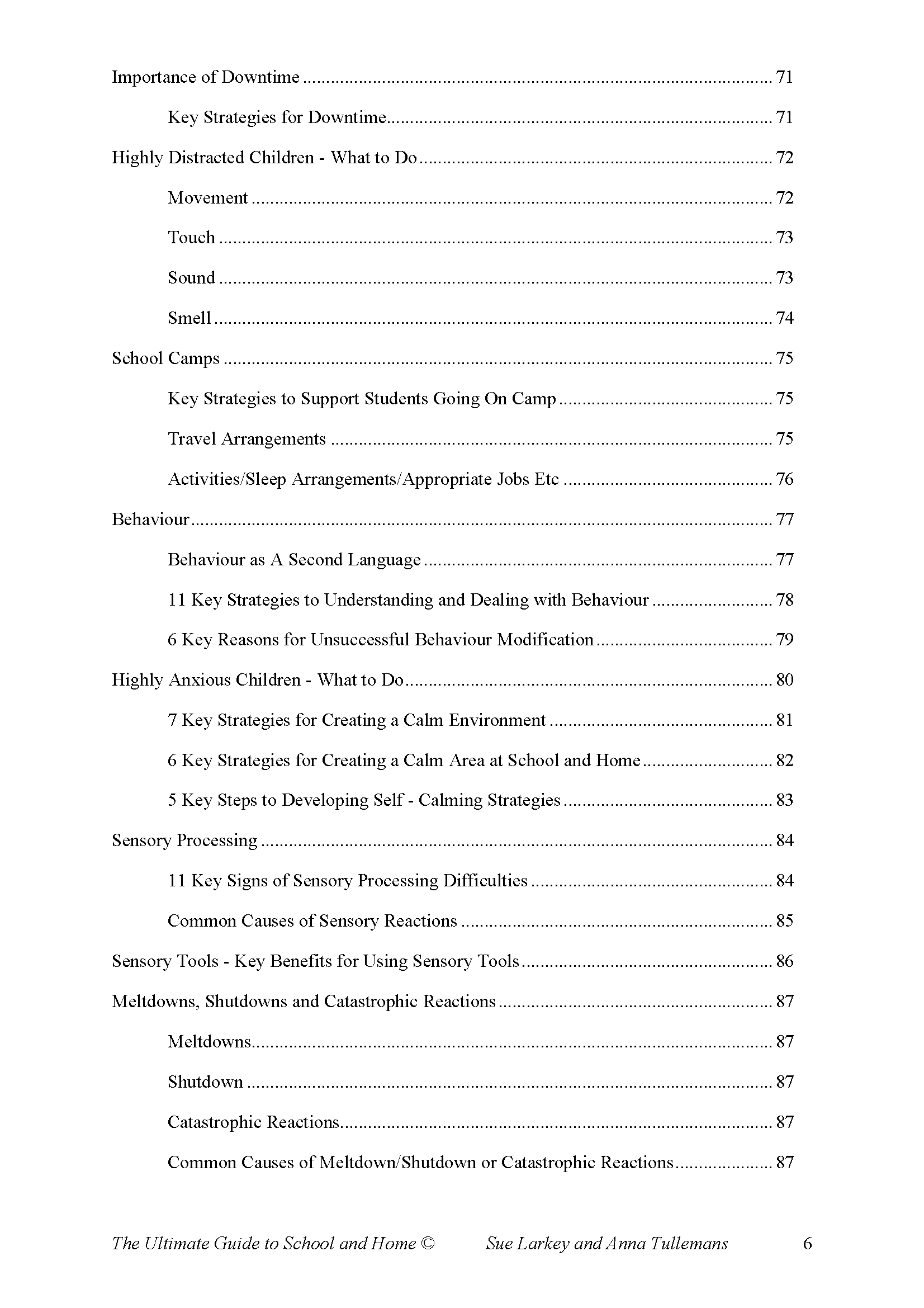
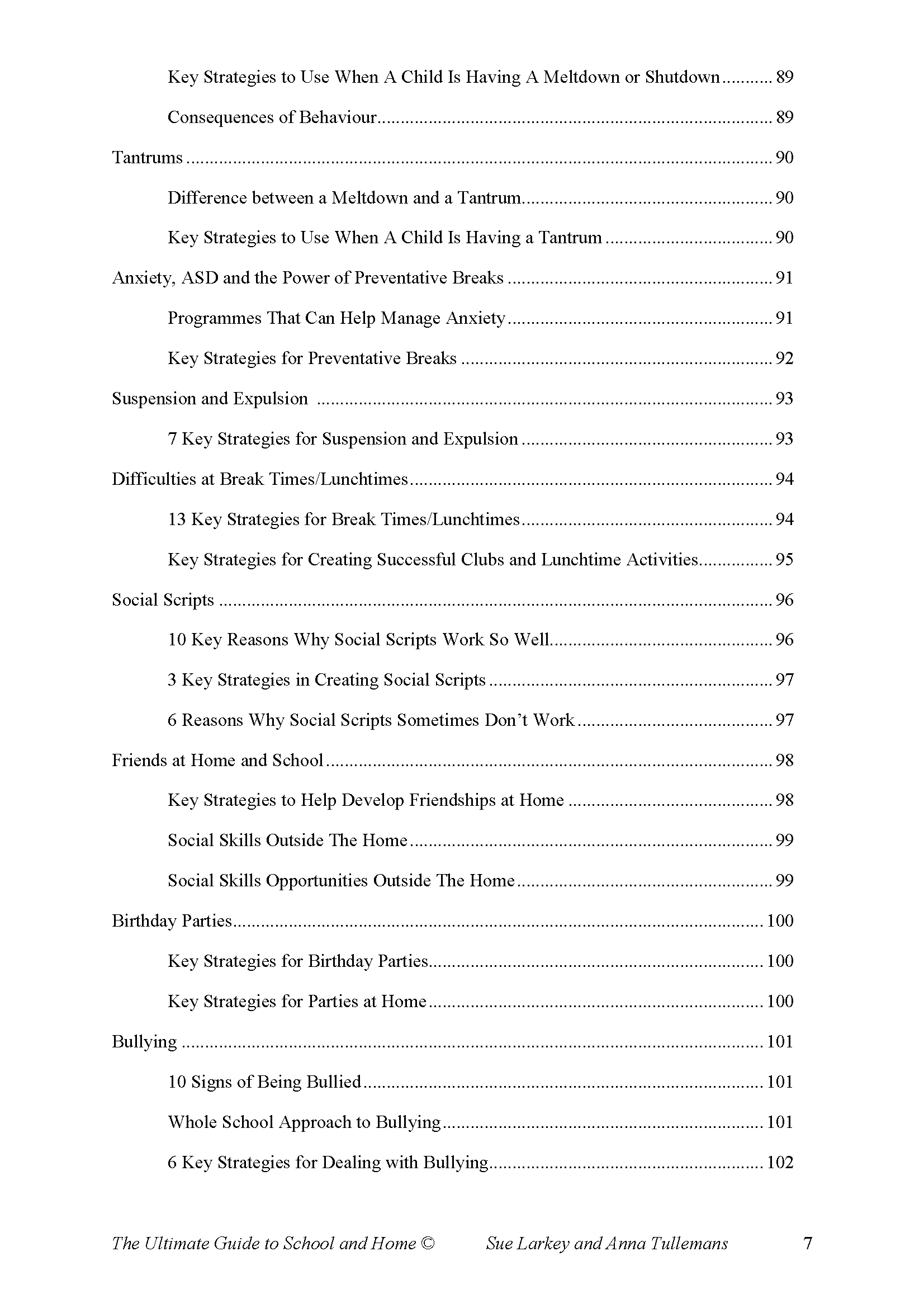
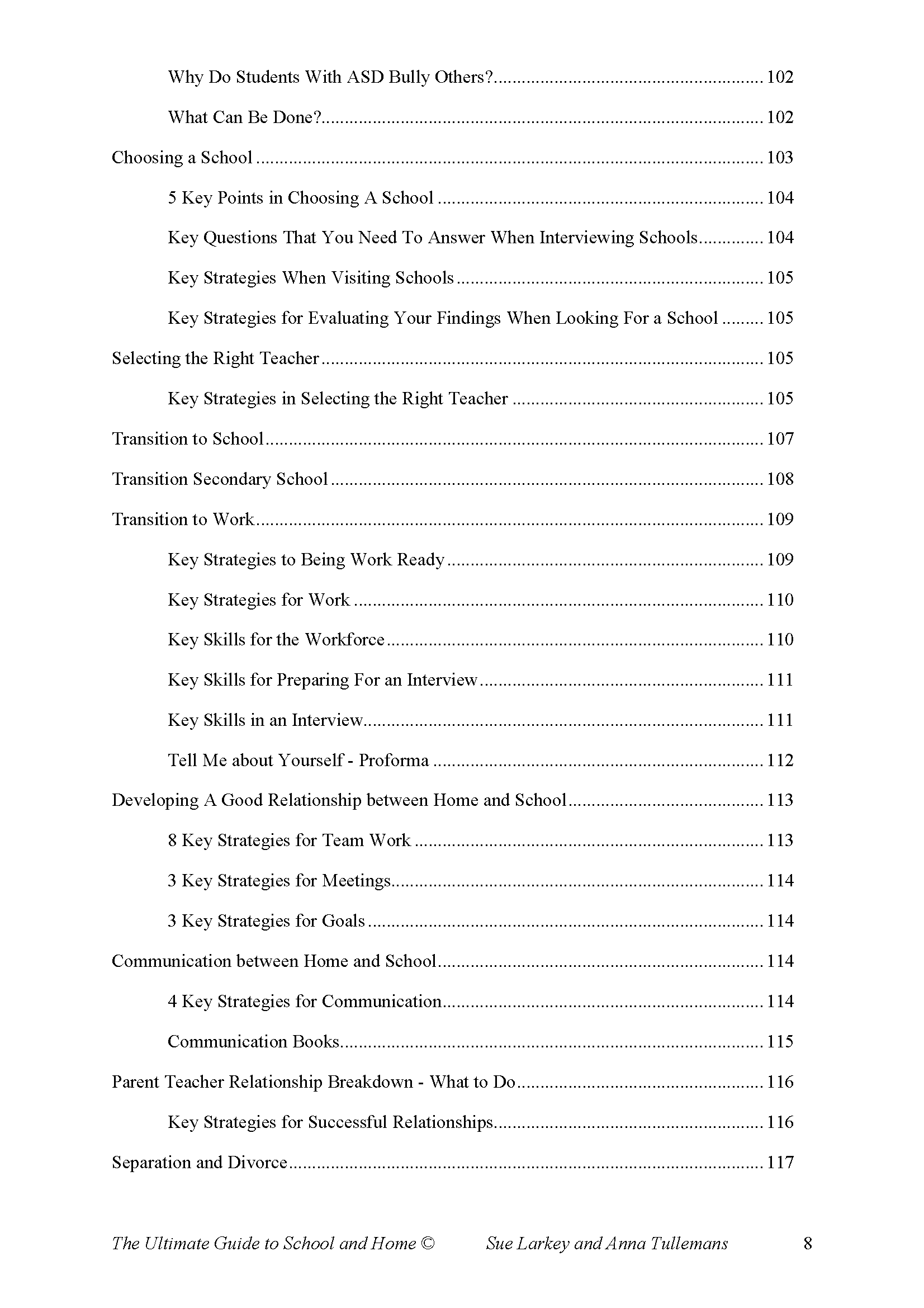
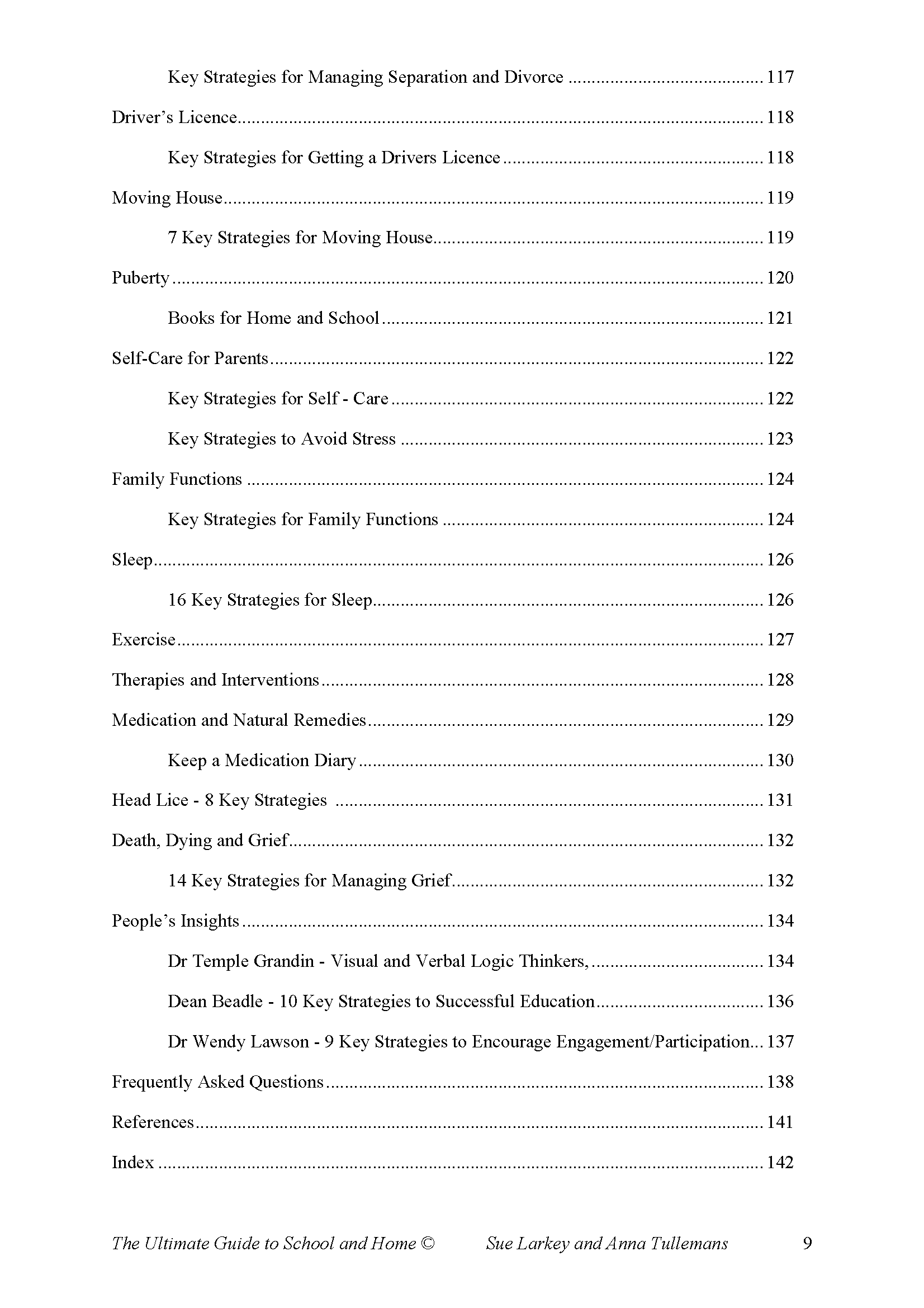
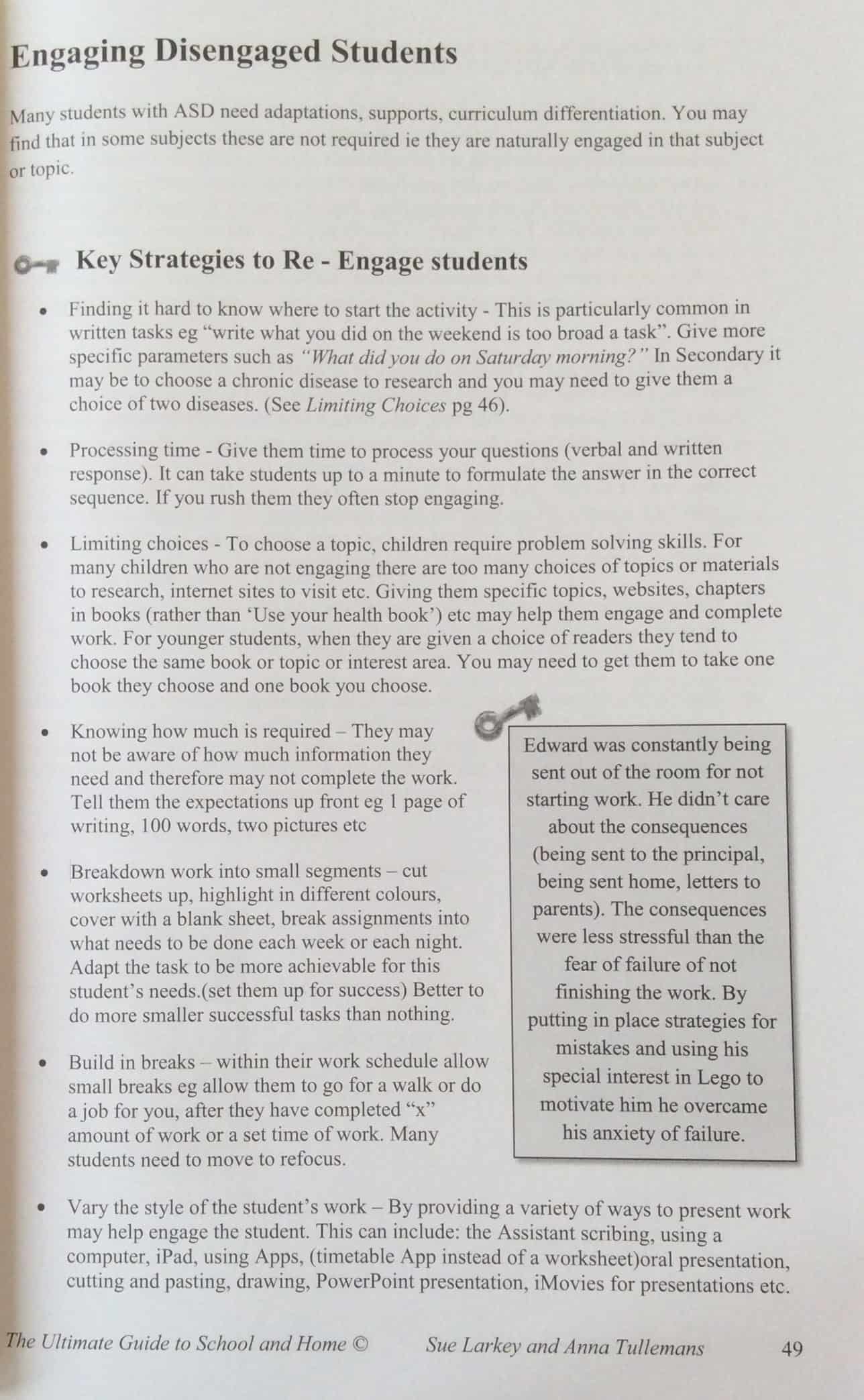
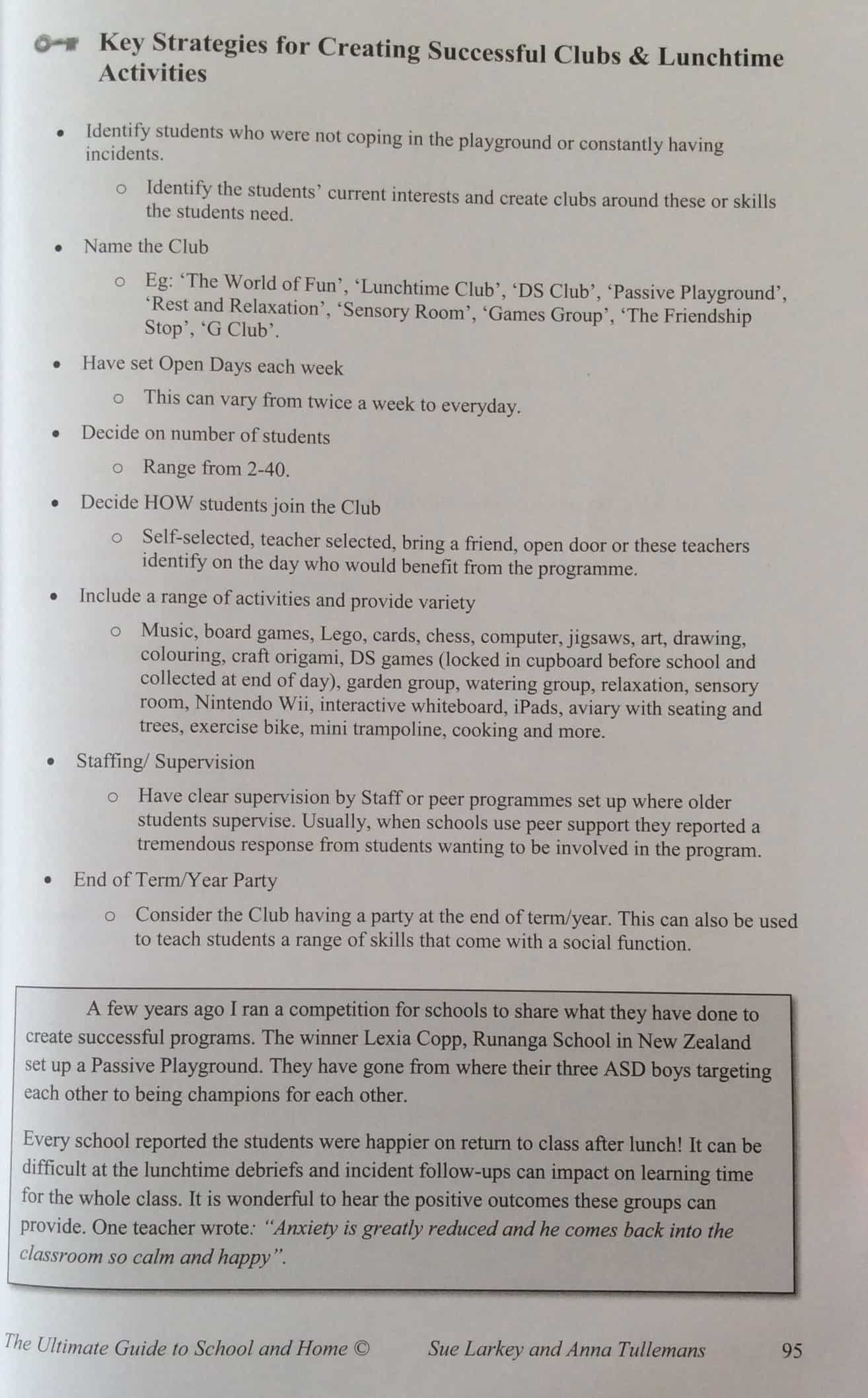






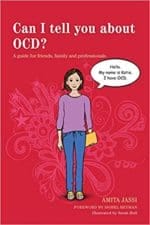





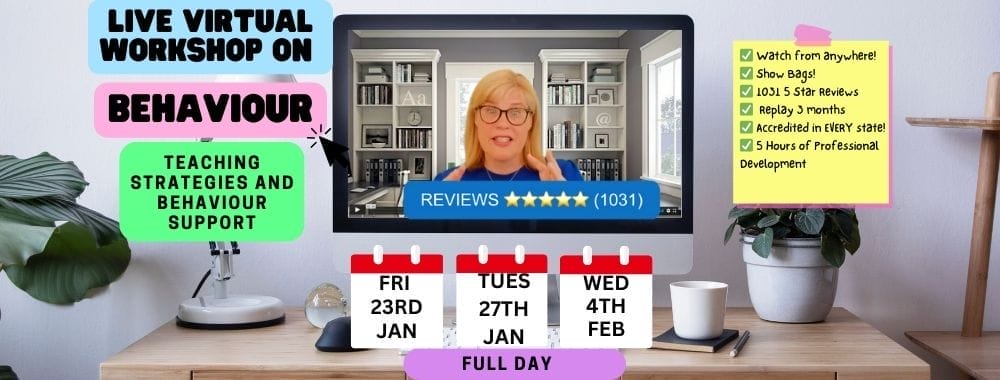
 2 Hours
2 Hours

 Sorry we no longer ship items outside Australia. Please consider the digital versions of Sue’s Books –
Sorry we no longer ship items outside Australia. Please consider the digital versions of Sue’s Books – 